- Learning time
- 20 minutes
- First play time
- 60 minutes
House of Borgia
Designed by: Scott Almes
The story of House of Borgia is that the Catholic church needs a Pope, and each player has their own Cardinal in mind that they’re trying to engineer into position. But the catch is, you need to keep who you’re backing a secret…
Six Cardinal cards are laid out in the centre of the table in ladder formation. At the start of the game their order is random, but it’s important to note that there is an order – the three cardinals at the top of the ladder will receive influence tokens at the end of any round, and when the game ends the Cardinal with the most influence will be made Pope.
Each player begins with four dice that they will roll but keep hidden behind a screen. The dice have six symbols on them that represent different five actions: Bribe, Poison, Judgement, Accusation, Rumour – and a sixth side has a Fate symbol that serves as a ‘wild’. What players want to do is take one of these actions, that mostly involve moving/removing influence tokens, or changing the order on the ladder.
At the start of a round all dice are rolled, then the starting player makes a bid, announcing which action they’d like to take and how many (at least) of the matching symbol they think there is on the table – not just their own dice, but everybody. If the player to their left thinks there are that many dice showing the symbol in question – Bribe, let’s say for example – then they allow them to take the action, and the ‘allowed’ is now the active player and it’s their turn to bid. But the catch is each bid must be higher than the last, so if the previous bid was ‘seven bribe’ the next player must bid eight (or more) of something. As soon as someone challenges a bid the round will end – all dice are revealed, and if there are enough dice to support the bid (matching symbols plus the wild Fate symbols) the player gets to take the action before the next round start – and the challenger loses a die. If there isn’t enough dice to cover the bid, the bidder loses a die instead.
Either way, influence tokens are added to the top three Cardinals on the ladder, and a new round begins. As soon as one player runs out of dice, the game ends.
One more thing to note – a crucial one — is that one of the actions allows you to place a Rumour card on a player who you suspect of supporting a particular Cardinal. These can change as the game progresses, but anyone who has a rumour card on them that matches their Cardinal when the game ends cannot win – so keeping your favoured Cardinal secret is very important!
Joe says
I've played this once, and quite liked it. Feels a bit like the designer took Coup, and added Perudo to it. It didn't make me want to play it again so much as it made me want to play either of those two. If you like Rice Krispies and you also like Cornflakes, you'll sometimes want to mix them together.
The guru's verdict
-
Take That!
Take That!
Plenty. Inadvertent at times; at others - not.
-
Fidget Factor!
Fidget Factor!
Once you know the game, the fidgeting was non-existent. Even when it's not your turn you need to keep track of what everyone's up to. That said, your turn comes around a lot quicker with fewer players, so it's probably best played with 3 or 4.
-
Brain Burn!
Brain Burn!
Low. You need to deceive and keep track of how many dice are left. And have a decent hunch on when to push your luck, and when to challenge.
-
Again Again!
Again Again!
It's one of those games that really relies on the players to fly, and for the right group this will reward return visits.

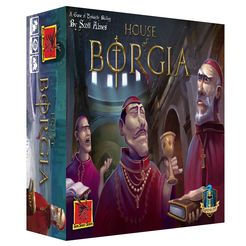
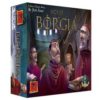
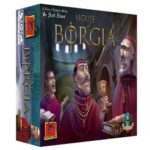
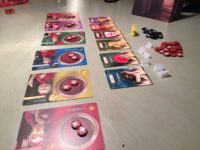
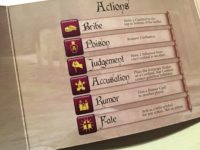
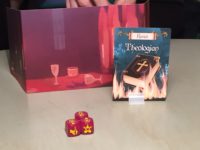
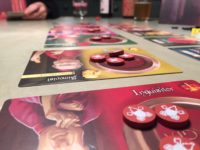


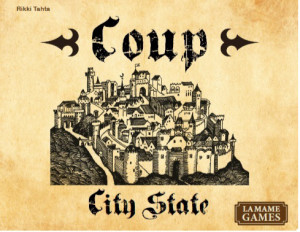
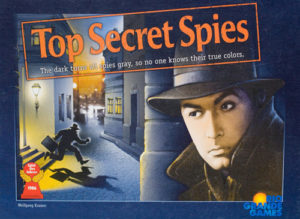
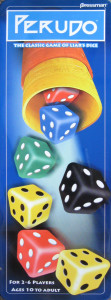
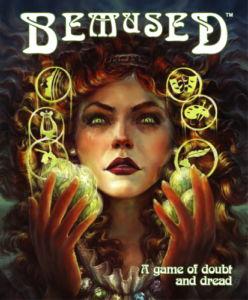
Sam says
I think Perudo - the bidding game upon which House of Borgia is built - is the more streamlined experience, as it's all about bidding and there are no special actions or politicking to worry about. Or if the hidden identity element appeals you can dispense with the bidding instead with games like Top Secret Spies or Insider. But House of Borgia marries these two aspects well, and there's a genuine tension as you see an opponent reaching for a Rumour card and praying - appropriately - that they're not going to successfully identify you...